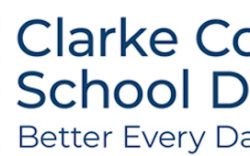After 95 days heading the Clarke County School District, Superintendent Demond Means said he wants all children in public school showing proficiency in reading and mathematics. And he wants to focus on the social and emotional growth of children, believing that behavior and academic success are tied together.
As Flagpole has reported, there are stark differences in achievement between white and African-American public school students in Athens-Clarke County. Although 60 percent of white students were proficient in math and language skills from third to eighth grade, less than 20 percent of black children were. And though the school district is 54 percent black, African-American students accounted for 80 percent of disciplinary events.
Last week, Means talked with about 40 people at a community engagement session at the Athens-Clarke County Library. His concern about proficiency is echoed in a study conducted by Get Georgia Reading, a collaborative group focused on helping all children read by third grade. Those who don’t reach that milestone can expect a lower life expectancy, Means said.
“It’s not so much about test scores,” he said. “Your life is shortened.”
A team of principals, assistant principals and teacher leaders is working to evaluate literacy programs and decide which one the district should be using. Right now, there are different reading programs at different schools. Means said some schools have programs in place that are working, and he doesn’t want to take those away.
When the topic of discipline came up, Means said that every day, some 80–90 percent of the approximately 15,000 children attending Clarke County schools go about their day in an orderly fashion, and only 10–20 percent misbehave. Instead of punitive discipline, he favors restorative discipline, in which the person who broke the rules faces the people his or her behavior affected. The offending person then works to make amends. To implement a system of restorative discipline will require more counselors and more social workers.
An elementary school teacher told Means that instead of pushing more computers and technology on children, she wants more human beings in the classroom, building relationships with children. Means said everyone agrees that having more trained adults in schools is a good thing—but it takes more money.
Means said he recently visited Fowler Drive Elementary, where there are numerous University of Georgia students who are slated to become student teachers. They do their practicums at Fowler Drive. By the time they are hired to teach at Fowler Drive, they are well-versed in the school’s culture and practices. Maybe other schools can also have UGA students in their classes, he said.
Much of the discussion focused on the Athens Community Career Academy. It was supposed to offer vocational training for students wanting to work in trades, job skills and some college courses taught by Athens Technical College instructors. What has happened, Means said, is the Academy has become an early college academy and not “one that trains people to move into a job.”
In offering a college curriculum, it’s “watering down what we are doing at Cedar and Central,” Means said. He wants to move those courses back to the high schools, and to beef up the beginning technical courses in high school and offer more advanced courses at the Academy.
When told that some students prefer attending the Academy because the atmosphere is calmer than at their high schools, Means said, “We need to address the root cause of kids not wanting to be in high school.”
Means also spoke at a forum on the “Crisis in Black Education” Dec. 2 at the H.T. Edwards building, where he told a crowd of several hundred (about evenly split between white and black) that race is “the elephant in the room” when it comes to education.
Data released by CCSD in October shows that black students are far less likely to be academically proficient, according to standardized tests, and more likely to be disciplined for misbehavior than white students. While some have argued that the issue is poverty, not race, Means called that “semantics,” saying that black and low-income students overlap significantly. Because school lunches are now free for everyone, thanks to a federal grant, the district no longer keeps records of who qualifies for free and reduced-price lunches, so it doesn’t have data about student poverty.
During a Q-and-A period, one woman told Means to be careful not to make white people feel like they’re doing something wrong. White people are doing something wrong, another white audience member shouted out. But Means said, “I’m agnostic when it comes to race.” His own daughter, a kindergartener at Timothy Road Elementary, will be able to navigate the system despite being black, he said. The system works well for many students, and he doesn’t want to change it for them, he said. “We marginalize certain groups of students, though,” he said.
Means presented several ideas for bringing equity to the school district: While schools should be free to keep programs that work, policies need to be standardized across the district because many low-income and black families frequently move during the school year. He wants to increase academic rigor, especially in math, where he proposed requiring all students to complete algebra in eight grade and algebra II in 10th grade—one year earlier than currently—and ensure that they can work with numbers (for example, count money) without an electronic device. He proposed adding more dual-enrollment courses for college credit, which he said benefits both students and teachers because it’s a professional development opportunity for educators. Other ideas included summer academic interventions, smaller class sizes, having school governance teams drill deeper into data and regularly reviewing school improvement plans. Emotional education is important, too—many students don’t know they’re supposed to sit down and be quiet, Means said.
Many of his goals are based around measuring whether students are on track to be career- or college-ready, meaning they don’t need any additional training or remedial classes to enter college or the workforce, because the data shows that many students who are not proficient in math or reading are graduating anyway.
On the topic of parental involvement, Means said many parents can’t attend PTA meetings because of their work schedules, but that doesn’t mean they don’t care about their children’s education. He recounted his own experience growing up in a working-class household where his parents worked night shifts, and he often had to cook for his siblings.
“If we can see the whites of [students’] eyes, if they’re sitting in their seats in the morning, that’s all we need [parents] to do,” Means said. It’s up to the entire community, not just parents, to hold the school district accountable, he said. When adults change, the system changes, and students recognize that and feel like they have a voice; then society starts to view schools differently, he said.
“When I talk about equity and social justice, it’s truly breaking down the marginalization of kids,” Means said. “It’s the deepest advocacy work we can do.”
Like what you just read? Support Flagpole by making a donation today. Every dollar you give helps fund our ongoing mission to provide Athens with quality, independent journalism.










